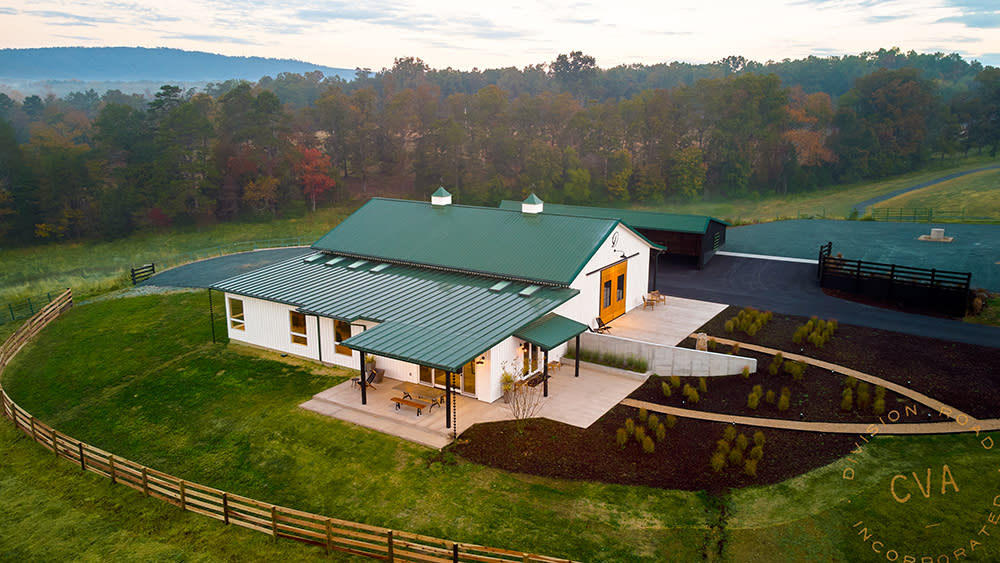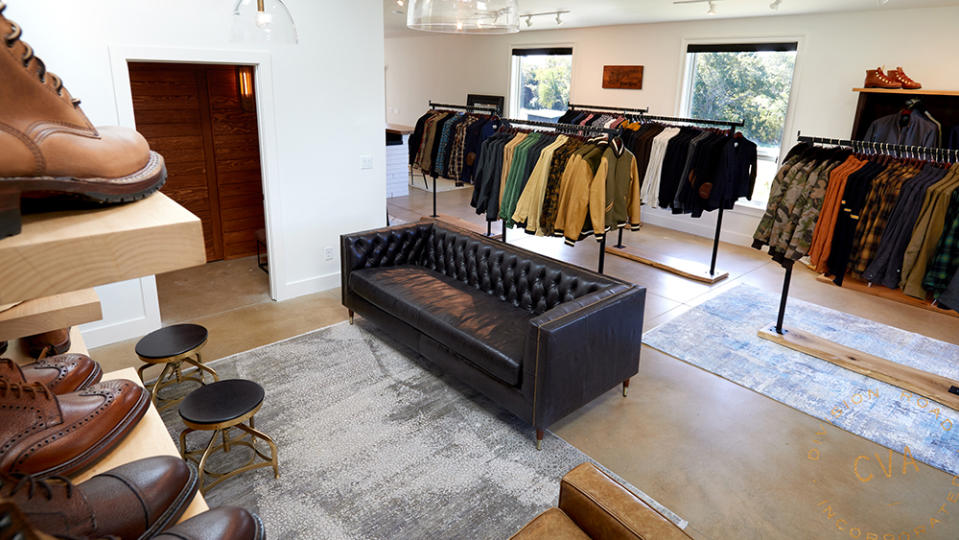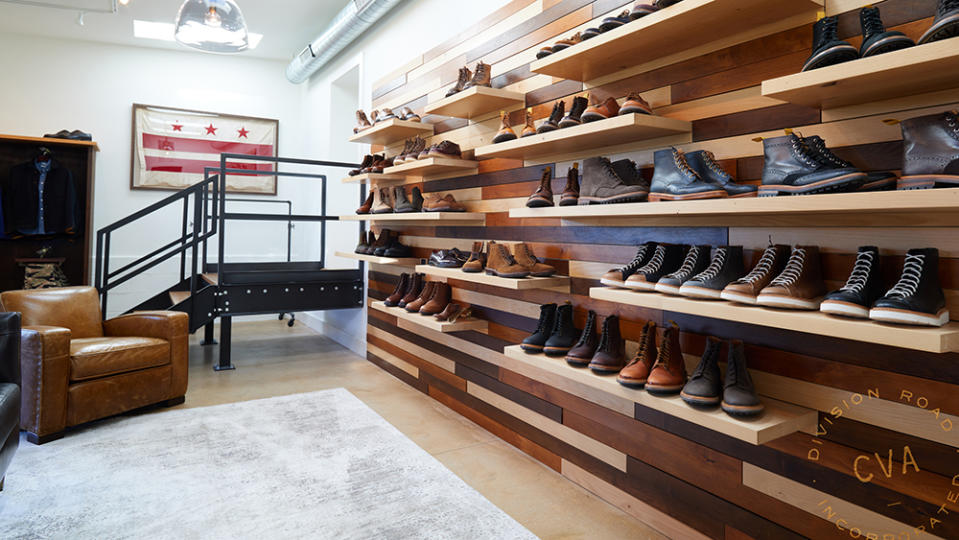Why One of the West Coast’s Coolest Menswear Stores Set up Shop in the Middle of Virginia

The “future of retail”—a fraught topic even before the Covid-19 pandemic—is hard to forecast. And few would imagine that it might take shape on a 45-acre property in Albemarle County, Virginia, some six miles south of Monticello and smack in the middle of the state’s wine country.
But that’s where Division Road founder Jason Pecarich chose to move his business, which he founded in Seattle in 2015 to bring heritage menswear brands to a locally underserved market. The shop’s diverse assortment was driven by a focus on “manufacturer brands” that produced the goods themselves, ranging from major names like Crockett & Jones or Alden to cult brands including Japanese denim maker Iron Heart or France’s De Bonne Facture. In addition to carrying goods from these sometimes hard-to-find brands, Division Road put its own stamp on the product by releasing frequent exclusives with its roster of makers.
More from Robb Report
The 20 Best Winter Hats for Men, From Loro Piana to L.L.Bean
Pharrell Reimagines Moncler's Beloved Puffer Jacket With a Special Rubber Edition
LA's Fred Segal Just Opened an NYC Pop-Up Shop for the Holidays

Pecarich, who is not a Seattle native himself, chose the city in part because Division Road’s “footwear first” emphasis meshed with the Pacific Northwest’s long history of shoe manufacturing. But he always intended to operate it as an “e-boutique” with equal attention paid to online sales, and a commitment to producing high-quality website content in-house.
When the pandemic struck, Pecarich had a chance to pause and consider what kind of environment the business needed to grow. He soon concluded that it wasn’t worth paying a premium to use urban space for online operations and product fulfillment, particularly when it was unclear how much time it would take for physical retail to bounce back.
Instead, he would use this once-in-a-generation disruption to build an entirely different retail experience outside of an urban setting. “If we’re changing how retail looks, this is a good time to do it rather than in five or 10 years from now,” Pecarich tells Robb Report.

After closing the Seattle store in July 2021, Pecarich narrowed the nationwide search for its successor down to five finalist locations that ranged from New Hampshire to the Hudson Valley. Finally, he settled on a plot of land in Albemarle County that included a former horse barn and farmhouse in addition to acres of woodlands and fields.
The structures were converted into a new operations HQ, fulfillment center, studio and a 2,000-square-foot showroom that clients could visit by appointment, which launched in August. The rest of its bucolic sprawl is being turned into what Pecarich dubs “The Fields,” a nature preserve where visiting desk jockeys can take their Indy boots for an actual walk in the woods.
But just as crucial to the project is what lies beyond Division Road’s new borders. Its facility is about an hour from Richmond and two hours from Washington DC but is surrounded by vineyards, craft breweries, and other businesses that have made Albemarle County an agritourism hub. It’s a bet that the consumer who gets in his car to see how wine is made may also be interested in how a pair of Goodyear-welted boots are crafted.
“We wanted to be in an area where [agritourism] is the tourism driver,” says Pecarich. “When we talk to our clients about the places that they vacation to and the types of experiences that they’re seeking, we thought that if we’re going to be in a different location maybe we should be somewhere like that.”

Division Road is also partnering with some neighbors to offer clients a complimentary glass of wine or beer while they shop the showroom’s wares. Afterward, they will be free to roam the Fields, to perhaps make use of one of the designated picnicking areas or its two miles of hiking trails. In addition to such solo experiences, Division Road will also invite clients to frequent maker events; a recent shindig with Washington bootmaker White’s brought the company’s CEO to the grounds to give a presentation on shoemaking and conduct a Q&A session with around 20 clients.
In the future, Pecarich hopes to build cabins to allow for overnight accommodations, and partner with local artisans to make furniture from the property’s felled trees. Presently, in-person shopping accounts for around five to 10 percent of the business’s sales, but Pecarich doesn’t believe that figure properly captures what Division Road’s new setting has to offer.
“We want to get outside of the transactional relationship. Sure, everybody who comes here ends up buying—that’s bar none. But that’s not the point,” he says. “We want them to come here for information, connection to the brand, and to really have an experience.”
As it turns out, not everything in retail has to have a price.
Best of Robb Report
Sign up for Robb Report's Newsletter. For the latest news, follow us on Facebook, Twitter, and Instagram.


